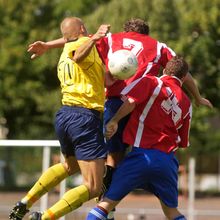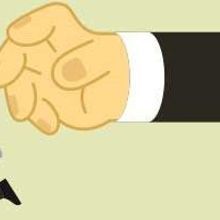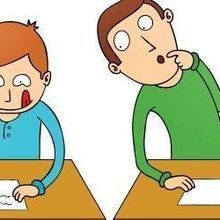plagiarism

Detecting Research Misconduct
in the Age of Artificial Intelligence
Danielle Gerhard, PhD | Dec 13, 2024 | 2 min read
The rise of fraudulent papers, exacerbated by AI-assisted technologies, threatens scientific integrity, but new detection tools offer hope.

Detection or Deception: The Double-Edged Sword of AI in Research Misconduct
Danielle Gerhard, PhD | Dec 13, 2024 | 10+ min read
New artificial intelligence tools help scientists fight back against a rising tide of research misconduct, but is it enough?

The Top Retractions of 2022
Ellie Kincaid, Retraction Watch | Dec 22, 2022 | 5 min read
From typo-laden code in psychedelics research to paper mills and plagiarism, we look back on some of the most notable retractions in scientific publishing this year.

UNC Research Chief Admits to Plagiarism, Resigns
Natalia Mesa, PhD | Mar 11, 2022 | 2 min read
Geneticist Terry Magnuson steps down as vice-chancellor at the University of North Carolina at Chapel Hill after he copied text from multiple sources he found online into a grant application.

Neurologist Paul McCrory Resigns Amid Plagiarism Allegations
Amanda Heidt | Mar 7, 2022 | 4 min read
McCrory left his post as chair of the influential Concussion in Sport Group after several of his editorials appeared to plagiarize other researchers’ work.

When Researchers Sound the Alarm on Problematic Papers
Shawna Williams | Sep 1, 2021 | 10+ min read
Finding and reporting an irregularity in a published study can lead people down an unexpected path.

Academics in Ukraine Fighting Against Rampant Misconduct
Emil Filtenborg and Stefan Weichert | Oct 29, 2019 | 6 min read
Plagiarism and bribery are commonplace, they say, and they’ve begun calling out lapses in scientific integrity.

Journals’ Plagiarism Detectors May Flag Papers in Error
Diana Kwon | Jun 25, 2019 | 3 min read
One recent case, in which a scientist claims his submitted manuscript was rejected despite a lack of actual plagiarism, highlights the limitations of automated tools.

Retraction Watch Launches Its Database of Papers
Ashley P. Taylor | Oct 26, 2018 | 2 min read
It includes more than 18,000 papers and conference materials that have been retracted since the 1970s.

Dartmouth Professor Plagiarized His Colleague, University Says
Jef Akst | Aug 20, 2018 | 2 min read
H. Gilbert Welch, a health policy expert who has advocated against superfluous cancer screening, published another Dartmouth researcher’s work, according to the university administration.

Mass Resignation from Scientific Reports’s Editorial Board
Catherine Offord | Nov 6, 2017 | 2 min read
Nineteen researchers have stepped down after the journal decided not to retract a paper that they say plagiarized the work of a Johns Hopkins biomedical scientist.

Parkinson’s Researcher Notches 17 Retracted Papers
Aggie Mika | Sep 13, 2017 | 2 min read
Scientific misconduct motivated Yoshihiro Sato’s three additional retractions last month; his institution doesn’t respond.

How Journals Treat Papers from Researchers Who Committed Misconduct
Diana Kwon | Aug 18, 2017 | 4 min read
Nature Plants explains how it handled a manuscript coauthored by Patrice Dunoyer, a biologist with multiple retractions to his name.

Notable Science Quotes
The Scientist | Feb 1, 2017 | 2 min read
Intellectual property theft, gun violence, scientific failure, and more

Survey: UK Researchers Rife with Misconduct
Bob Grant | Jul 5, 2016 | 1 min read
Are scores of British scientists faking data and plagiarizing?

Repeat Offenders
Kerry Grens | Apr 25, 2016 | 2 min read
Scanning the literature, scientists find that nearly 2 percent of papers contain duplicated and manipulated figures, among other image-prep no-nos.

Retractions Often Due to Plagiarism: Study
Kerry Grens | Jun 1, 2015 | 2 min read
The number of plagiarism-based retractions has grown since the advent of detection software, according to a BioMed Central analysis.

Author Sues Journal
Kerry Grens | Feb 10, 2015 | 1 min read
The American Diabetes Association faces a lawsuit after journal editors express concern over several papers.

Study: Scientists Witness Plagiarism Often
Kerry Grens | Nov 3, 2014 | 2 min read
A meta-analysis of surveys used to gauge plagiarism among scientists finds that nearly one-third of researchers have witnessed the problem.
